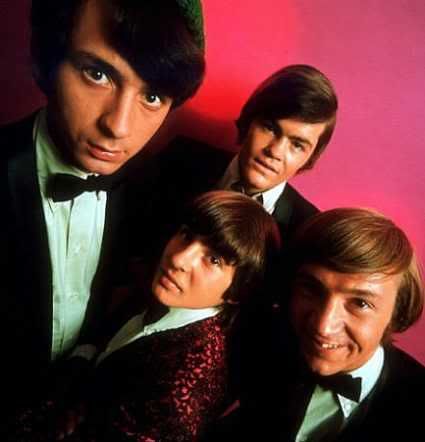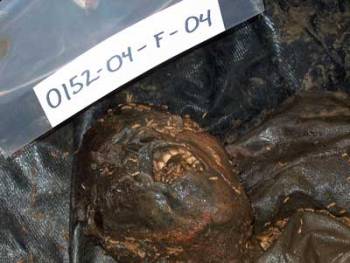Connections

The boy browsed our DVD collection.
"Hey Dad, did you like The Monkees when you were my age?"
A sudden warmth filled my chest.
"Oh yeah. That was one of my favorite shows. Still is."
"I think I'll watch a few of them, if it's okay."
"Go ahead. Enjoy it, son."
He pulled out both box sets, each containing a full Monkees season (crammed with extras and commentary tracks), and decided on a few shows from the 1st, the action more cartoonish and less self-conscious than the 2nd. Personally, I prefer the 2nd season more, as the Monkees began to comment on and dismantle their pre-fab image (plus, the music's wilder and stranger). But the boy will get to that in his own good time. Or maybe not. In any case, I don't wanna push my old enthusiasms on him.
The Monkees will always hold a special place in my heart. My childhood was, among many things, very constricted and extremely conservative. Early on I sought some kind of creative outlet, but was blind to what that actually was. I felt the desire yet had no clue, and none of the adults around me encouraged this, assuming that they even noticed. I was inspired by something I couldn't name or begin to describe. My hunger grew, and I gnawed on whatever cultural scraps I could find.
Then I began watching The Monkees, and entered a world that made immediate sense. Catchy tunes, frenetic slapstick, bright colors and long hair. Indeed, I think it was the long hair that first grabbed me. Younger readers cannot appreciate what that meant Back Then. In 1966-67, you didn't see men with long hair on national TV, certainly not on a Top Ten show that appealed to kids. Despite all the revisionist pop culture takes on the Sixties, long hair didn't become mainstream until the early-70s. Before that, if you grew your hair long, esp in the Midwest, you were a commie freak or worse (I recall some teen hippies being heckled and chased by older crew-cut rubes at a local shopping center). And this is what I found so attractive about The Monkees -- their hair seemed to get longer by the week, and the adults I knew were utterly repulsed by it.
Hey hey, that made me happy.
Long hair was only part of it. I plugged into the anarchic spirit of the show, the jumping around, running maniacally, acting ridiculously and yelling nonsensically. All the costumes, personas and strange voices, popping in and out in random nonlinear fashion. And everything held together by the music, much of which was first-rate pop rock. I mean, when you have people like Neil Diamond, Carole King & Gerry Goffin, Tommy Boyce & Bobby Hart, and Harry Nilsson writing your songs, something's gonna stick, and many Monkee tunes are still played today and their albums continue to sell globally. (Van Dyke Parks auditioned for the show and was rejected, only to collaborate with Brian Wilson on "Smile" less than a year later. Imagine what he would have brought to The Monkees.) Not bad for a band that lasted roughly three years after being constructed by two offbeat Hollywood producers.
Over the years, friends of mine have slammed my love for The Monkees, telling me how plastic and phony they were, how they represented corporate greed and co-optation of the slickest cynical kind. And so they did. The whole Monkees concept was an attempt to cash-in on Beatlemania, but in strictly market terms, it was a fringe idea. Bert Schneider and Bob Rafelson shot the pilot on a shoestring in 1965 and barely sold it to NBC, which was confused about the whole thing, since no show like it then-existed on air. And this is what made The Monkees an instant hit -- it stood clearly out in a field of timid programming, and was helped enormously by, yes, the music, but also by the bold visual style Schneider and Rafelson employed: the Marx Brothers meet the French New Wave. I'm amazed it won an Emmy for best Comedy Series, though it was wholly deserved. It's rare to see the Old Guard recognize something new and brash right out of the gate.
The Monkees also anticipated, if not created, the pre-fab band industry, another of their many cultural crimes, according to my friends. Again, this is true, but I can think of no other pre-fab band that so consciously and joyfully destroyed their own image. From the middle of the 2nd season on, The Monkees called attention to the hollowness of their "reality," getting rid of the laughtrack while mocking the entire format that leaned heavily on fake laughs. Allusions to the Vietnam war and the counterculture that opposed it emerged (though in the 1st season, when the boys are playing with dominoes, one of them knocks down an entire line, calling it "Indochina"). Their final episode satirized the narcotic effect of TV, ending with an evil video wizard (played by a bizarre Rip Taylor) and his henchmen thwarted by clouds of (thinly disguised) pot smoke as they lay in the grass, smiling and laughing.
Needless to say, NBC didn't give The Monkees a 3rd season.
And then there's the 1968 Monkee film "Head", directed by Rafelson, co-written by Rafelson, Jack Nicholson and The Monkees. This is where the whole pre-fab premise blew sky high as Nesmith, Jones, Dolenz and Tork tore themselves and the culture that bred them to shreds before drowning together in a water tank on the back of a moving truck. "Head" is a full-frontal act of conceptual suicide (a view shared here), and given the state of mind its creators were in when they wrote and filmed it, "Head" is perhaps best viewed while in that same state of mind.
But all this analysis is beside the point (and believe me, I can write much much more about this subject). For me, the initial sensation I got when watching The Monkees was one of freedom, and it sparked the first thoughts I had about performing and writing comedy. It was a temporary escape from the blandness that surrounded me. So I suppose that's why I'll always be fond of the show and the music. As for my son, he digs The Monkees on his own sweet terms, and this connection is the nicest of all.








